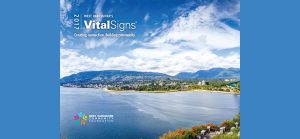Vital conversation taking place in West Vancouver
October 25, 2017 - 6 minutes read On behalf of the Board, I have used this space frequently in the past to discuss the importance of relationships and community building to the success of students and our school district as a whole. We have realized enormous benefits to working with community non-profits and business, as well as our partners in academic and political institutions, to create opportunities for students to connect what they learn to their role as creative, productive, caring citizens.
On behalf of the Board, I have used this space frequently in the past to discuss the importance of relationships and community building to the success of students and our school district as a whole. We have realized enormous benefits to working with community non-profits and business, as well as our partners in academic and political institutions, to create opportunities for students to connect what they learn to their role as creative, productive, caring citizens.
We are extremely fortunate, and long-time residents know that we are privileged to live in this corner of the world. Residents continue to enjoy access to enviable community services in a safe and beautiful natural environment. But as the 2017 Vital Signs report, released earlier this month by the West Vancouver Community Foundation shows, a vital conversation and action is needed to ensure ongoing access to these benefits for future generations.
Some of the areas outlined in this year’s report focus on changes in housing access and affordability, demographic shifts and a growing income gap. Individually, change in any of these areas can create challenges for a community and the people who depend on services. But, like many neighbouring communities, West Vancouver is grappling with several of these issues at the same time, and the solutions being explored have implications across age groups and in every sector of the local economy.
To remain part of our community, young people need access to affordable housing, and must feel connected, welcome and valued. In 2016, there were just 3,950 West Vancouver residents aged 25-39 – a 45 per cent drop in the 20 years since 1996. While according to the report, affordability is a major factor, our partners at the municipality are looking into other factors that increase the sense of community and belonging, including walkability, mixed-use developments and access to festivals, arts and entertainment.
We also need workers and professionals to continue to choose West Vancouver as a place to work and live. Non-profit organizations, small businesses and large employers like the Board of Education depend on the skills and talent of our workforce to provide excellence across a broad range of economic activities in human services, health, education, technology and other areas of our local economy. In addition to the toll on quality of life that long commutes create for families, relying solely on local infrastructure such as the Lions Gate and Ironworkers’ Memorial bridges to bring our professionals to our community is not a sustainable solution for the future.
West Vancouver is also home to those who speak more than 40 languages, and while English is still the first language spoken at home by the majority, as the first language spoken at home, it has decreased by 10 per cent since 2011. This increase in diversity brings important new ideas, perspectives and experiences to bear on community life, but to benefit from those contributions, it’s important for local organizations to build in greater inclusiveness, tolerance and opportunities so new arrivals feel welcome and valued.
With support from the West Vancouver Community Foundation, one of the ways we’ve been able to engage with our partners is by leading Glowing Hearts, a collaborative project centred at the Properties Family Hub. This project documents, shares and celebrates the stories of Canadian families as part of our vibrant, changing community. A recent Canada 150 street party, hosted on the grounds of Sentinel Secondary school, was planned and delivered by local volunteers, and drew 600 people to the event last month. Programming at the hub has continued to offer new residents ways to access multi-cultural services, reducing the isolation that can affect student success in the early years.
As a Board, we will continue to explore ways to connect on matters that are central to the health of our community for young people and our employees. Across our province, and within our own community, change is a constant, and it is coming faster than many of us realize. Our response to that change will be critical for our children and the health of our community. I encourage you to download the report, which is full of helpful tips on how you can make a difference and get personally involved. For the children and families of West Vancouver, and for the staff who deliver an incredible range of amazing education services to our students, West Vancouver needs to remain a viable place to work, live, contribute and grow.
Carolyn Broady, Chair
Tags: West Vancouver